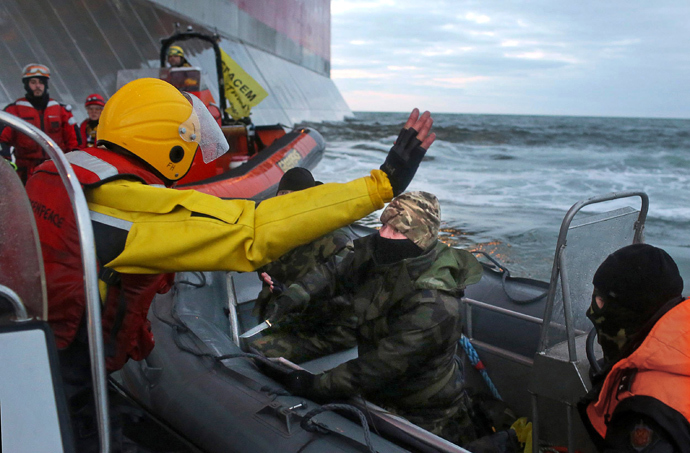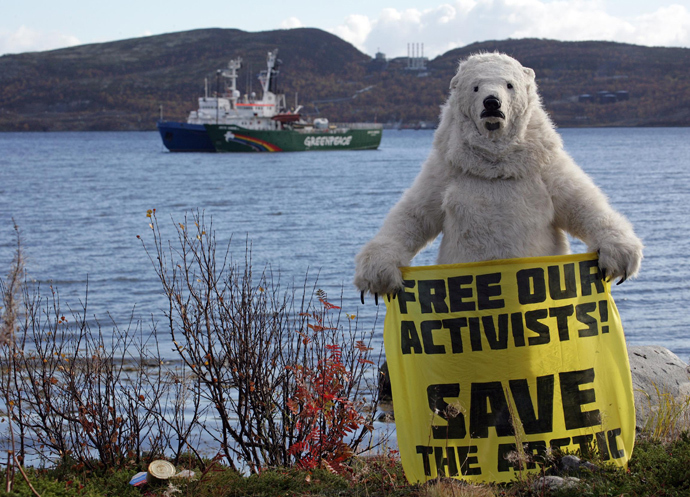Putin: Greenpeace activists not pirates, but they violated intl law
RT : September 25, 2013 08:48

The Greenpeace activists who boarded a Russian oil rig are “obviously not pirates,” says President Vladimir Putin. However, technically they did try to take the rig over, thus violating international law.
The Russian president was referring to an incident last week in which a group of environmental activists scaled an oil rig in protest against the danger they claimed oil extraction poses.
Russian border guards detained them and their vessel. Russia’s Investigative Committee has since launched a piracy case against the protesters.
“Anything could have happened. An operator error or a technical malfunction. There was a danger to lives and people’s health. Are such publicity stunts really worth the possible serious consequences they may bring?” Putin asked participants of an international Arctic forum in Russia.
-

He cited the example of the bloody takeover of the Kenyan shopping mall by radical Islamist gunmen as a worst-case scenario the guards could have considered.
He added that “It would have been better if Greenpeace members were in this hall and describing their attitude to the problems we are discussing, voicing their demands and wording their concerns. Nobody brushes them aside.”
"The one thing I agree with Putin is that Greenpeace are not pirates,” the head of the Greenpeace Russia Energy Department, Vladimir Chuprov, said in a statement. “I’d like to remind that Vladimir Putin himself told Canada’s The Globe and Mail that he admires the actions of courageous people who oppose giant industrial and military ships while riding small boats.”
He added that Greenpeace tried to alarm Russian authorities of the danger of an oil spill in the Arctic, particularly from the Gazprom-owned Prirazlomnaya rig, where the incident happened.
“A spill may contaminate water in a 140 sq km area, while the cleanup plan the company has is absolutely inadequate. What’s more, we can’t access it,” Chuprov said. “So far we have seen only polite brush-offs and no real action from the authorities.”
-

Next day border guard troops boarded both the rig and the activists’ ship Arctic Sunrise, detaining all the 30 protesters and eventually towing the vessel to the Russian port of Murmansk.
Greenpeace activists are currently facing piracy charges, Russia’s Investigative Committee announced on Tuesday. The environmental organization called the allegations absurd.
On Wednesday Russian law enforcers said that the criminal case may be downgraded to less severe charges, if the investigation proves it necessary. The detained activists may be released on Thursday night, unless charges against them are filed and a court orders their arrest.
Greenpeace Russia complains that the prosecution is not allowing legal counsel to meet the activists, citing the lawyers as saying that they have never seen such violations of due process in their careers. The organization has chosen three lawyers to represent those involved in the incident.
Gazprom said it considers filing a lawsuit against Greenpeace as its response to the incident.
